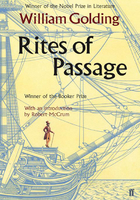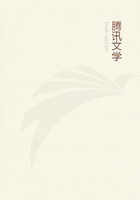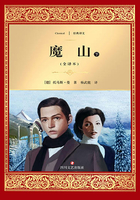THE PIANO TEACHER, Erika Kohut, bursts like a whirlwind into the apartment she shares with her mother. Mama likes calling Erika her little whirlwind, for the child can be an absolute speed demon. She is trying to escape her mother. Erika is in her late thirties. Her mother is old enough to be her grandmother. The baby was born after long and difficult years of marriage. Her father promptly left, passing the torch to his daughter. Erika entered, her father exited. Eventually, Erika learned how to move swiftly. She had to. Now she bursts into the apartment like a swarm of autumn leaves, hoping to get to her room without being seen. But her mother looms before her, confronts her. She puts Erika against the wall, under interrogation-inquisitor and executioner in one, unanimously recognized as Mother by the State and by the Family. She investigates: Why has Erika come home so late? Erika dismissed her last student three hours ago, after heaping him with scorn. You must think I won't find out where you've been, Erika. A child should own up to her mother without being asked. But Mother never believes her because Erika tends to lie. Mother is waiting. She starts counting to three.
By the count of two, Erika offers an answer that deviates sharply from the truth. Her briefcase, filled with musical scores, is wrenched from her hands-and Mother instantly finds the bitter answer to all questions. Four volumes of Beethoven sonatas indignantly share cramped quarters with an obviously brand-new dress. Mother rails against the purchase. The dress, pierced by a hook, was so seductive at the shop, so soft and colorful. Now it lies there, a droopy rag, pierced by Mother's glare. The money was earmarked for their savings account. Now it's been spent prematurely. The dress could have been visible at any time as an entry in the bank book-if you didn't mind going to the linen closet, where the bank book peeks out from behind a pile of sheets. But today, the bank book went on an outing, a sum was withdrawn, and the result can now be seen. Erika should put this dress on whenever they wonder where the nice money went. Mother screams: You've squandered your future! We could have had a new apartment someday, but you couldn't wait. All you've got now is a rag, and it'll soon be out of fashion. Mother wants everything "someday." She wants nothing right now-except the child. And she always wants to know where she can reach the child in an emergency, in case Mama is about to have a heart attack. Mother wants to save now in order to enjoy someday. And then Erika goes and buys a dress, of all things! Something more fleeting than a dab of mayonnaise on a sardine sandwich. This dress will soon be totally out of fashion-not even next year, but next month. Money never goes out of fashion.
They are saving to buy a large condominium. The cramped apartment they now rent is so ancient, you might as well just abandon it. When they decide on the condominium, they will be allowed to specify where to put the closets and partitions. You see, an entirely new construction system is being used. Every aspect is custom-designed, according to your precise wishes. You pay your money and you get your choice. Mother, who has only a tiny pension, gets her choice and Erika pays. In the brand-new, state-of-the-art condominium, mother and daughter will each have her own realm, Erika here, Mother there, both realms neatly divided. However, they will have a common living room to meet in. If they wish. But of course they do, because they belong together. Even here, in this dump, which is slowly falling to pieces, Erika already has her own realm, her own roost, which she rules and is ruled in. It is only a provisional realm; Mother can walk in at any time. There is no lock on Erika's door. A child has no secrets from her mother.
Erika's living space consists of her own small room, where she can do as she pleases. No one may interfere; this room is her property. Mother's realm is the rest of the apartment: the housewife, being in charge of everything, keeps house everywhere, and Erika enjoys the fruits of her mother's labor. Erika has never had to do housework, because dustrags and cleansers ruin a pianist's hands. During Mother's rare breathers, she occasionally worries about her vast and varied holdings. You can't always tell where everything is. Just where is Erika, that fidgety property? Where is she wandering? Is she alone or with someone else? Erika is such a live wire, such a mercurial thing. Why, she may be running around at this very moment, up to no good. Yet every day, the daughter punctually shows up where she belongs: at home. Mother worries a lot, for the first thing a proprietor learns, and painfully at that, is: Trust is fine, but control is better. Her greatest anxiety is to keep her property immovable, tie it down so it won't run away. That's why they have the TV set, which prefabricates, packages, and home-delivers lovely images, lovely actions. So Erika is almost always at home. If not, her mother knows where she's flitting about. Now and then, Erika may attend an evening concert, but she does so less and less. Instead, she sits at her piano, pounding away at her long-discarded career as a concert pianist. Or else she's an evil spirit, haunting some rehearsal with her students. Her mother can ring her up there in an emergency. Or else Erika enjoys performing with congenial colleagues, exuberantly playing chamber music. Her mother can telephone her at such times too. Erika pulls against apron strings, she repeatedly begs her mother not to telephone. But Mother ignores her pleas, for she alone dictates the shalts and shalt-nots. Mother also controls the general demand for her daughter, so that ultimately fewer and fewer people wish to see Erika, or even speak to her. Erika's vocation is her avocation: the celestial power known as music. Music fills her time completely. Her time has no room for anything else. Nothing offers so much pleasure as a magnificent performance by the finest virtuosi.
Erika visits a café once a month, but her mother knows which café, and she can ring her up there too. Mother makes generous use of this privilege, this homemade structure of security and intimacy.
Time around Erika is slowly turning into a plaster cast. It crumbles the instant her mother strikes it. At such moments, Erika sits there, with remnants of time's brace around her thin neck. Mother has called her up, making her a laughingstock, and Erika is forced to admit: I have to go home now. Home. If ever you run into Erika on the street, she is usually on her way home.
Mother says: Erika suits me just fine the way she is. Nothing more will come of her. She's so gifted, she could have easily become a nationally renowned pianist-if only she'd left everything to me, her mother. But Erika ignored her mother's wishes, and sometimes yielded to other influences. Self-centered male love threatened to interfere with her studies. Superficial things like makeup and clothes reared their ugly heads. And her career ended before it ever got underway. Still, you need some kind of security: the position of piano teacher at the Vienna Conservatory. And she didn't even have to pay her dues by teaching at one of the neighborhood music schools, where so many people grind away their young lives, turning dusty gray, hunchbacked-a swiftly passing throng, barely noticed by the principal.
But that vanity of hers, that wretched vanity. Erika's vanity is a major problem for her mother, driving thorns into her flesh. Erika's vanity is the only thing Erika should learn to do without. Better now than later. For in old age, which is just around the corner, vanity is a heavy load to bear. And old age is enough of a burden as it is. Oh, that Erika! Were the great musicians vain? They weren't. The only thing Erika should give up is her vanity. If necessary, Mother can smooth out the rough edges, so there won't be anything abrasive in Erika's character.
That's why Mother tries to twist the new dress out of Erika's convulsed fingers. But these fingers are too well trained. Let go, Mother snaps, hand it over! You've got to be punished for caring so much about trivial things. Life has punished you by ignoring you, and now your mother will punish you in the same way, ignoring you, even though you dress up and paint your face like a clown. Hand it over!
Erika dashes to the closet. Her dark suspicion has been confirmed several times in the past. Today, something else is missing: the dark-gray autumn ensemble. What's happened? Whenever Erika realizes something is missing, she instantly knows whom to blame: the only possible culprit. You bitch, you bitch! Erika furiously yells at the superior authority. She grabs her mother's dark-blond hair with its gray roots. A beautician is expensive. So once a month, Erika colors her mother's hair with a brush and dye. Now, Erika yanks at the hair that she herself beautified. She pulls it furiously. Her mother weeps. When Erika stops pulling, her hands are filled with tufts of hair. She gazes at them, dumbfounded. Chemicals have already broken the resistance of this hair, which nature did not make all that strong in the first place. Erika doesn't know what to do with the discolored dark-blond tufts. She goes into the kitchen and throws them into the garbage can.
Mother, with less hair on her head, stands crying in the living room, where her Erika often gives private concerts. She is the very best performer ever to play in the living room, because no one else ever performs here. Mother's trembling hands still clutch the new dress. If she wants to resell it, she'll have to hurry. This design, with poppies as big as cabbages, can be worn for only one year-then never again. Mother's head hurts in the places where hair is now missing.
The daughter comes back, upset, weeping. She curses her mother, calls her a vicious bitch, but hopes Mother will make up with her right away. Kiss and make up. Mother swears that Erika's hand will drop off because she hit her mother and tore out her hair. Erika sobs louder and louder. She's sorry. After all, her mama works her fingers to the bone for her. As a rule, Erika instantly regrets anything she does to her, for she loves her, Mama's known her since infancy. Eventually Erika relents, as expected; she bawls bitterly. Mama is willing, all too willing, to give in; she cannot be truly angry at her daughter. Let me fix some coffee and well drink it together. During the coffee break, Erika feels even sorrier for her mother, and the final vestiges of her anger vanish in the cake. She examines the bare spots on her mother's head. But she doesn't know what to say, just as she didn't know what to do with the tufts of hair. She sheds a few more tears, for good measure, because Mother is old and won't live forever; and because Erika's youth is gone. Or, more generally, because all things pass and few ever return.
Mother now explains why a pretty girl never has to get gussied up. Erika confirms it. She has so many things hanging in her closet. But why bother? She never wears any of them. Her clothes hang there uselessly, decorating the closet. Mother can't always prevent Erika from buying something, but she can dictate what Erika puts on. Mother is an absolute ruler. She decides what Erika will wear outside the house. You are not going out in that getup, Mother dictates, fearing what will happen if Erika enters strange homes with strange men in them. Erika has resolved never to wear her clothes. It is a mother's duty to help a child make up her mind and to prevent wrong decisions. By not encouraging injuries, a mother avoids having to close wounds later on. Erika's mother prefers inflicting injuries herself, then supervising the therapy.
Their conversation becomes more and more vitriolic: Mother and daughter spray acid at students who do better than Erika or threaten to do so. You shouldn't give them free rein, you don't need to. You should stop them. But you let them get away with murder! You're not smart enough, Erika. If a teacher puts her mind to it, none of her students will succeed. No young woman will emerge from her classroom and pursue a career against Erika's wishes. You didn't make it-why should others reach the top? And from your musical stable to boot?
Erika, still sniveling, takes the poor dress into her arms. Mute and miserable, she hangs it in the closet, among the other dresses, pantsuits, skirts, coats, and ensembles. She never wears any of them. They are merely supposed to wait here until she comes home in the evening. Then, after laying them out, she drapes them in front of her body and gazes at herself in the mirror. For these clothes belong to her! Mother can take them away and sell them, but she cannot wear them herself, for Mother, alas, is too fat for these narrow sheaths. They do not fit her. These things are all Erika's. They are hers. Hers. The dress does not yet realize that its career has just been interrupted. It has been put away unused, and it will never be put on. Erika only wants to own it and look at it. Look at it from afar. She doesn't even want to try it on. It's enough for her to hold up this poem of cloth and colors and move it gracefully. As if a spring breeze were wafting it. Erika tried the dress on in the boutique, and now she will never slip into it again. Erika has already forgotten the brief, fleeting spell it cast on her in the shop. Now she has one more corpse in her wardrobe, but it is her property.
At night, when everyone else is asleep, Erika remains awake and alone, while the other half of this twosome (they are chained together by ties of blood) sleeps like a baby, dreaming up new methods of torture. Sometimes, very seldom, Erika gets up, opens the closet door, and caresses the witnesses to her secret desires. Actually, these desires are not all that secret; they shriek out their prices, they yell: Why did Erika go to all that trouble anyway? The colors shriek along, in a chorus of mixed voices. Where can you wear something like that without being hauled off by the police? (Normally, Erika wears only a skirt and a sweater or, in summer, a blouse.) Sometimes Mother wakes with a start, and she instinctively knows: Erika's looking at her clothes again. That vain piece of baggage! Mother is certain, for the closet doors do not squeak just to amuse the closet.
Worst of all, these purchases keep the new apartment beyond reach forever, and Erika is always in danger of falling, tumbling, into love. Suddenly they would have a cuckoo egg, a male in their nest. Tomorrow, at breakfast, Erika can expect a severe dressing-down for her frivolity, Why, Mother could have died yesterday from injuries done to her hair, from the shock. Erika will be given a deadline for the next installment on the apartment; she'll simply have to give more private lessons.
The only item missing from her dismal wardrobe is, fortunately, a wedding gown. Mother does not wish to become a mother-in-law. She prefers remaining a normal mother; she is quite content with her status.
But today is today. Time to sleep! That's what Mother, in her matrimonial bed, demands. But Erika is still rotating in front of her mirror. Mother's orders smash into her back like hatchets. Erika quickly touches a fetchingly flowery cocktail dress, barely grazing its hem. These flowers have never breathed fresh air, nor have they ever experienced water. The dress, as Erika assures her mother, comes from a first-class fashion house in the heart of Vienna. Its quality and work manship will make it a joy forever. It fits Erika like a glove (not too much junk food!). The instant she saw the dress, Erika had a vision: I can wear it for years, and it will always be at the height of fashion. It will never sink from that height by even a hair's breadth. This argument is wasted on her mother. Mama should do some careful soul-searching. Didn't she wear a similar dress when she was young? But she denies it on principle. Nonetheless, Erika concludes that this purchase makes sense. The dress will never be out of date; Erika will still be able to wear it in twenty years.
Fashions change quickly. The dress remains unworn, although in perfect shape. But no one asks to see it. Its prime is past, ignored, and it will never come again-or at best in twenty years.
Some students rebel against their piano teacher. But their parents force them to practice art, and so Professor Kohut can likewise use force. Most of the keyboard pounders, however, are well-behaved and interested in the art they are supposedly mastering. They care about it even when it is performed by others, whether at a music society or in a concert hall. The students compare, weigh, measure, count. Many foreigners come to Erika, more and more each year. Vienna, the city of music! Only the things that have proven their worth will continue to do so in this city. Its buttons are bursting from the fat white paunch of culture, which, like any drowned corpse that is not fished from the water, bloats up more and more.
The closet receives the new dress. One more! Mother doesn't like seeing Erika leave the apartment. Her dress is too flashy, it doesn't suit the child. Mother says there has to be a limit. Erika doesn't know what she means. There's a time and a place for everything, that's what Mother means.
Mother points out that Erika is not just a face in the crowd: She's one in a million. Mother never stops making that point. Erika says that she, Erika, is an individualist. She claims she cannot submit to anyone or anything. She has a hard time just fitting in. Someone like Erika comes along only once, and then never again. If something is especially irreplaceable, it is called Erika. If there's one thing she hates, it's standardization in any shape, for example a school reform that ignores individual qualities. Erika will not be lumped with other people, no matter how congenial they may be. She would instantly stick out. She is simply who she is. She is herself, and there's nothing she can do about it. If Mother can't see bad influences, she can at least sense them. More than anything, she wants to prevent Erika from being thoroughly reshaped by a man. For Erika is an individual, although full of contradictions. These contradictions force Erika to protest vigorously against any kind of standardization. Erika is a sharply defined individual, a personality. She stands alone against the broad mass of her students, one against all, and she turns the wheel of the ship of art. No thumbnail sketch could do her justice. When a student asks her what her goal is, she says, "Humanity," thus summing up Beethoven's Heiligenstadt Testament for her pupils-and squeezing in next to the hero of music, on his pedestal.
Erika gets to the heart of artistic and individual considerations: She could never submit to a man after submitting to her mother for so many years. Mother is against Erika's marrying later on, because "my daughter could never fit in or submit anywhere." That's the way she is. She's no sapling anymore. She's unyielding. So she shouldn't marry. If neither spouse can yield, then a marriage is doomed. Just be yourself, Mother tells Erika. After all, Mother made Erika what she is. You still aren't married, Fr?ulein Erika? the dairy woman asks, and so does the butcher. You know I can never find a man I like, Erika replies.
Erika comes from a family of signposts that stand all alone in the countryside. There are few of them. The members of her family breed sparingly and sluggishly, which is how they deal with life in general. Erika did not see the light of day until the twentieth year of her parents' marriage-a marriage that drove her father up the wall and behind the walls of an asylum, where he posed no danger to the world.
Maintaining noble silence, Erika buys a stick of butter. She's still got her mom, she don't need no Tom. No sooner does this family get a new member than he is rejected and ejected. They make a clean break with him as soon as he proves useless and worthless. Mother taps the family members with a mallet, separating them, each in turn. She sorts and rejects. She tests and ejects. In this way, there'll be no parasites, who always want to take things that you want to keep. We'll just keep to ourselves, won't we, Erika? We don't need anyone else.
Time passes, and we pass the time. They are enclosed together in a bell jar: Erika, her fine protective hulls, her mama. The jar can be lifted only if an outsider grabs the glass knob on top and pulls it up. Erika is an insect encased in amber, timeless, ageless. She has no history, and she doesn't make a fuss. This insect has long since lost its ability to creep and crawl. Erika is baked inside the cake pan of eternity. She joyfully shares this eternity with her beloved composers, but she certainly can't hold a candle to them when it comes to being loved. Erika struggles for a tiny place within eyeshot of the great musical creators. This place is fought for tooth and nail; all Vienna would like to put up a tiny shack here. Erika stakes off her lot, a reward for her competence, and begins digging the foundation pit. She has earned her place fair and square, by studying and interpreting! After all, performance is form, too. The performer always spices the soup of his playing with something of his own, something personal. He drips his heart's blood into it. The interpreter has his modest goal: to play well. He must, however, submit to the creator of the work, says Erika. She willingly admits that this is a problem for her. She simply cannot submit. Still, Erika has one goal in common with all the other interpreters: to be better than the rest!
SHE is pulled into streetcars by the weight of musical instruments, which dangle from her body, in front and behind, along with the stuffed briefcases. An encumbered butterfly. The creature feels it has dormant strength for which music does not suffice. The creature clenches its fist around the handles of violins, violas, flutes. It likes to make negative use of its energy, although it does have a choice. Mother offers the selection: a broad spectrum of teats on the udder of the cow known as music.
SHE bangs into people's backs and fronts with her stringed instruments and wind instruments and her heavy musical scores. Her weapons bounce off these people, whose fat is like a rubber buffer. Sometimes, if the whim strikes her, she holds an instrument and a briefcase in one hand while insidiously thrusting her other fist into someone's winter coat, rain cape, or loden jacket. She is blaspheming the Austrian national costume, which tries to ingratiate itself with her, grinning from all its staghorn buttons. Emulating a kamikaze pilot, she uses herself as a weapon. Then again, with the narrow end of the instrument (sometimes the violin, sometimes the heavier viola), she beats into a cluster of work-smeared people. If the trolley is mobbed, say around six in the evening, she can injure a lot of people just by swinging around. There's no room to take a real swing. SHE is the exception to the norm that surrounds her so repulsively. And her mother likes explaining to her very meticulously that she is an exception, for she is Mother's only child, and has to stick to the straight and narrow. Every day, the streetcar shows her the people she never wants to become. SHE plows through the gray flood of passengers with or without tickets, those who have just gotten in and those who are about to leave, those who have gotten nothing where they were and who have nothing to expect where they are going. They are anything but chic. Some get out before they have even sat down properly.
If mass anger orders her to get out, even if she is still far from home, her own anger, concentrated in her fist, yields obediently, and she actually gets out-but only to wait patiently for the next trolley, which is as certain to come as the amen at the end of a prayer. These are chains that never break. Then, all fueled up, she mounts a new assault. Bristling with instruments, she arduously staggers into the mobs of homebound workers, detonating among them like a fragmentation bomb. If need be, she hides her true feelings and says, "Pardon me, I'm getting off here." The approval is unanimous. She should leave the clean public vehicle at once! It's not meant for people like her! Paying passengers shouldn't let people get away with things like this.
They look at the music student and imagine that music has raised her spirits; but the only thing that's raised is her fist. Sometimes a gray young man with repulsive things in a threadbare haversack is unjustly accused, for he is a more likely culprit. He'd better get out and go back to his friends before he catches it from a powerful loden-sheathed arm.
The mass anger, which has, after all, paid its fare, is always in the right for its three schillings and can prove it in case the tickets are inspected. During a surprise inspection the mass anger proudly shows its marked ticket and has the trolley car all to itself. In this way, it saves itself weeks of unpleasant, fearful purgatory, wondering whether an inspector might come.
A lady, who feels pain as deeply as you do, suddenly shrieks. Somebody's kicked her shin, that vital part on which her weight partially rests. In this dangerous shoving and pushing, the culprit, true to the principle of guilt, cannot be determined. The crowd is battered with a barrage of oaths, curses, insults, complaints, entreaties, accusations. The laments pour out of mouths that vent their spleen over their owners' lives, the charges are discharged upon other people. The passengers are squeezed together like sardines, but they are not packed in oil. They won't be anointed until later.
SHE furiously kicks a hard bone, which belongs to a man. One day, SHE is with a fellow student, a girl, who has two wonderful high heels that blaze as two eternal flames, and a new fur-lined coat in the latest style. The girl amiably asks Erika: What are you dragging around, what's it called? I meant this case here, and not your head up there. It's called a viola, SHE replies politely. A viooola? What a weird word, I've never heard it, lipstick-coated lips say in amusement. Someone carries something called a viooola, which doesn't serve any noticeable purpose. And everyone has to get out of the way because this viooola takes up so much space. SHE walks around with it in public, and no one catches her in flagrante delicto.















